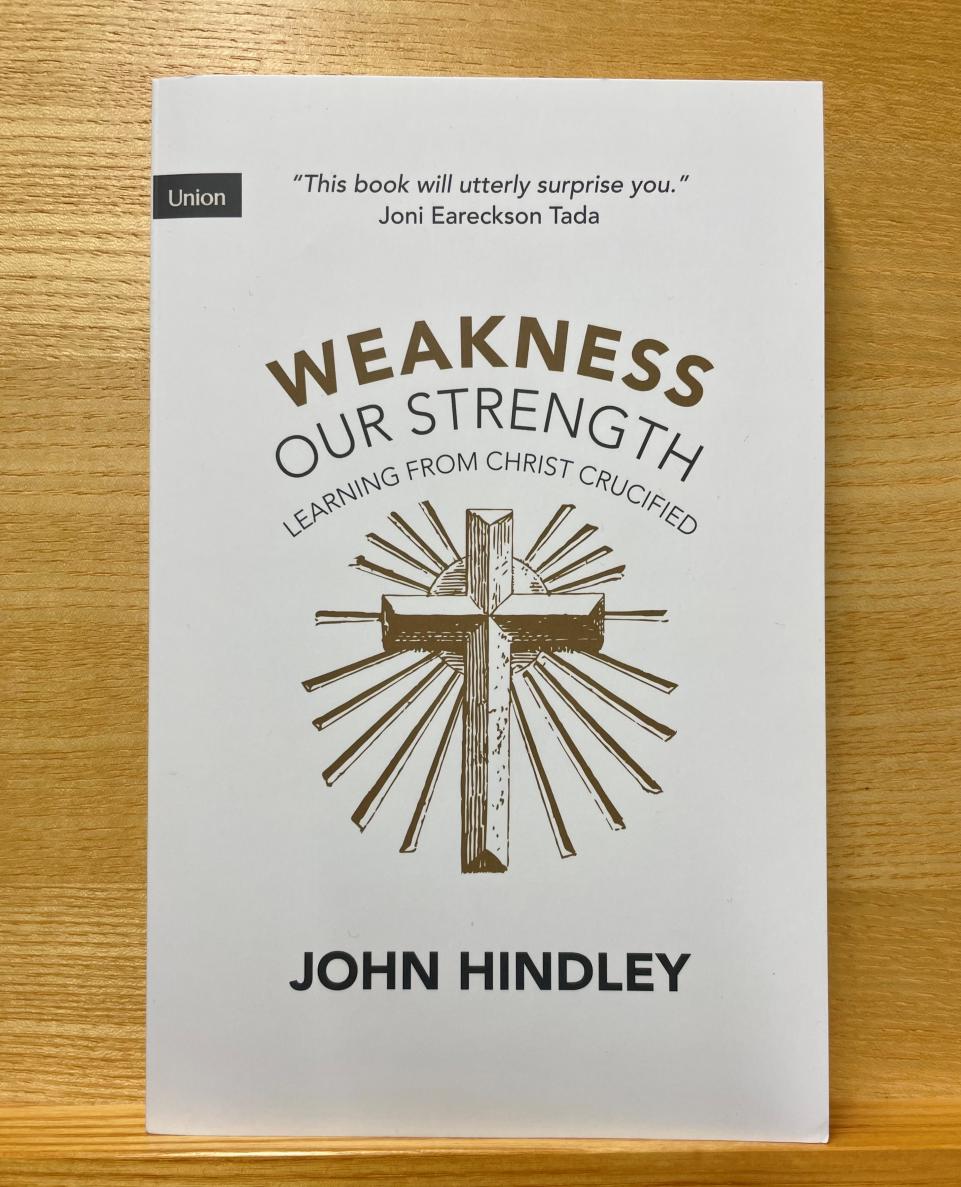Book Review: Weakness Our Strength

Weakness Our Strength: Learning from Christ Crucified by John Hindley (Union Publishing, 2023)
by Davy Ellison
In one of my first rugby training sessions at secondary school I quickly realised rugby was not the game for me. As I ran with all my might, ball in hand, and try line quickly approaching, I was stopped in my tracks. A bone-crunching tackle would have at least kept my ego relatively intact, but instead I had been picked up off the ground and was being carried back towards my own try line. Humiliating! I’m not sure I have ever felt that weak and helpless since.
I have not told many people this rugby story. The main reason: it’s embarrassing. We don’t like admitting our weakness. We don’t like thinking about the ways in which we are weak and helpless. It’s important, however, as humans but particularly as Christians. This makes Hindley’s Weakness Our Strength a timely book. In an era of bravado, we need a book like this.
After the assertion that we are weak in Chapter 1, Hindley offers meditations on various aspects of weakness in Chapters 2–4. The back half of the book then explores our weakness as creatures (Chapter 5), sinners (Chapters 6–7), the church (Chapter 8), and the gospel and Jesus (Chapters 9–10). The book possesses a thoughtful development throughout the chapters.
Four aspects stood out as particularly helpful and beneficial:
- First, the book is refreshingly honest. Hindley does a great job at being honest about his weaknesses without it sounding like false modesty or attention seeking. Instead of an author on a pedestal, he reads like a fellow pastor sitting across the table.
- Second, the book is thoroughly Christ-centred. The reader is consistently pointed to Jesus. Hindley writes, for example: “Weakness is not the traitor we take it for. Rather, it is our friend. Weakness can show us more of Jesus and how we may follow him than strength ever could” (p. 35).
- Third, it pushes back against the prevalent victim mentality in contemporary thinking. It would be easy to slip into a victim mentality when considering the theme of weakness. In fact, Hindley warns against owning lesser weaknesses because it’s easier. He explains: “To shift blame involves admitting to some weaknesses while failing to own a greater, and truer, weakness. We would rather be stressed than mean; we would rather be deceived than liars. We want to be strong, but being weak can help us out sometimes” (p. 54).
- Fourth, the book is hopeful. Chapter 8 was the chapter I appreciated most, especially the challenge not to hide the weakest in the church. Collectively and individually the church is weak, but it is in this weakness that Christ’s strength and glory shine.
Ironically a book on weakness has very few weaknesses, and certainly none that need outlining here given the parameters the author establishes at the outset. Picking up and reading Weakness Our Strength will be time well spent. I would encourage you to do so.
You can get your own copy here: https://www.unionpublishing.org/product/weakness-our-strength-learning-from-christ-crucified/





